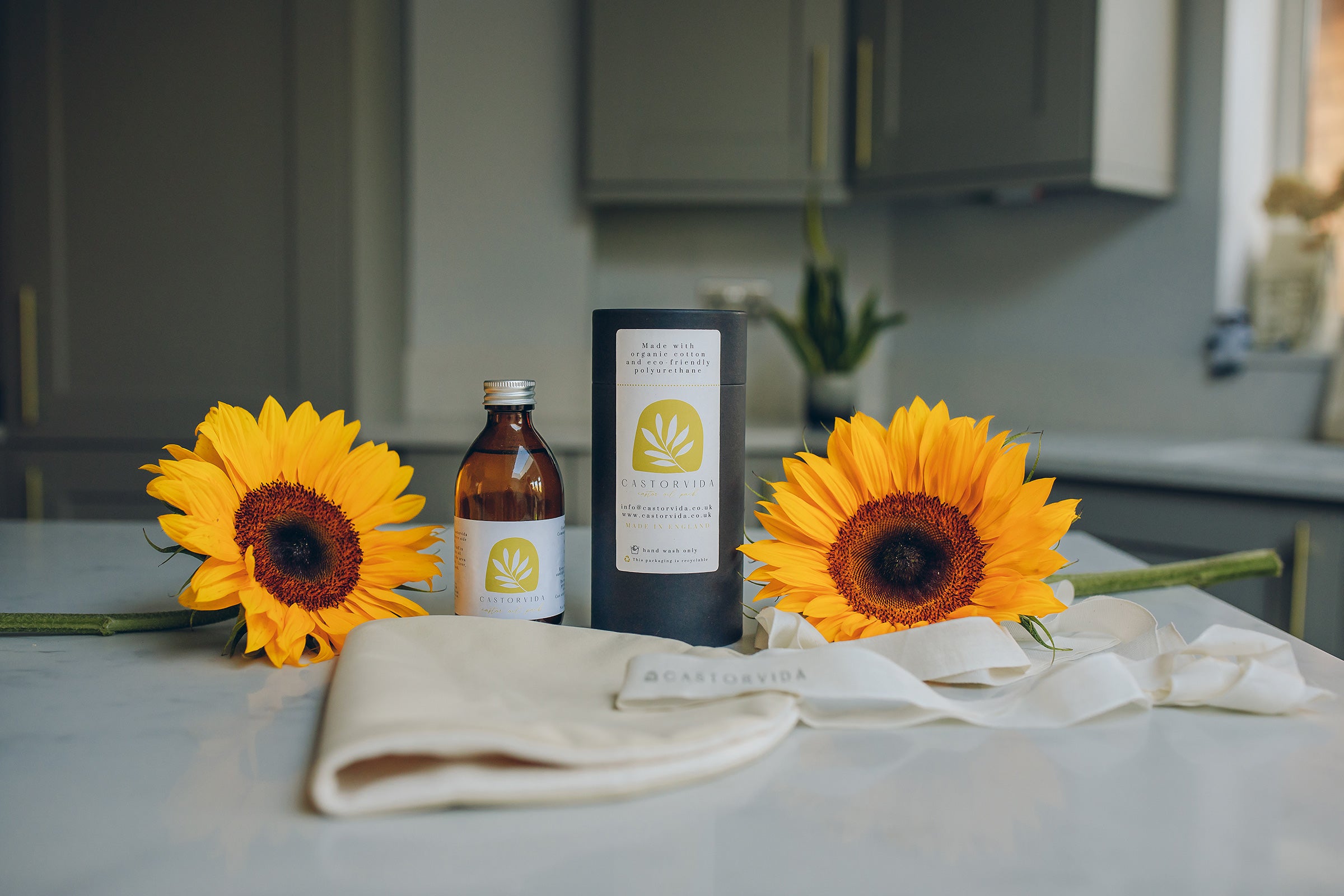By Catherine Morgan
Skin care is often focused on what we put on the outside of our body, on the surface. But we might want to look a little deeper, especially if we’re dealing with a skin condition. Whilst creams, ointments and lotions can be helpful for supporting skin health, we should also look to our internal environment and nourish ourselves from the inside, too. The solution to some common skin complaints may therefore not come from a bottle at all, but rather from something within. And our gut is a good place to start.
The Gut-Skin Connection
Although they may seem like two distinct organs, our gut and skin are closely intertwined. In fact, there is growing evidence to suggest that impaired gut health might be at the root of a wide range of skin conditions, including psoriasis, acne, eczema, and rosacea. But how?
The Microbiome
Despite being two distinct organs, our gut and skin have one major thing in common – they are both teaming with microbes, including bacteria, yeasts and viruses. The bugs that reside in our gut are collectively referred to as the gut microbiome, and those that have set up camp on are skin are the skin microbiome. And whilst the thought of being home to trillions of bugs may be uncomfortable for some, these tiny inhabitants bring with them a whole host of health benefits, including regulating and supporting the immune system – so we certainly don’t want to evict them.
But things like stress or anxiety, poor dietary habits, infections, and antibiotics can all disrupt our gut and/or skin microbiome and cause an imbalance within the microbial population. This shift in our gut microbes is referred to as dysbiosis, and is associated with an altered immune response and local and systemic inflammation – which can show up as various skin complaints, including psoriasis, atopic dermatitis, eczema, acne and rosacea.
Leaky Gut
The integrity of our gut lining may also have implications for our skin health. The guts mucous membrane is naturally semi-permeable, meaning it lets some things in, such as water and nutrients, and keeps other larger molecules out. But damage to this membrane can cause a condition referred to as ‘leaky gut’, or ‘increased intestinal permeability’, which allows larger molecules that would otherwise remain in the gut or pass through it to make their way through into the bloodstream, where they have the potential to trigger an immune reaction and inflammation. This may be the case with food sensitivities, for example, where someone might react to food particles that have passed into the bloodstream and triggered an immune response. Although not yet a recognised medical condition, some healthcare professionals believe that leaky gut could be an underlying factor in a wide range of conditions and diseases, including skin complaints. Various things can contribute to leaky gut, including stress, dysbiosis, excess alcohol, poor diet and older age.
Poor Digestion
Our digestive system is where we absorb nutrients from our foods – so if it’s not functioning optimally then we won’t get the vital nutrients our skin needs. Eating on the go, rushing our food, stress, low stomach acid, and poor diet can all impact our digestive function – and therefore affect the availability of nutrients needed for maintaining and repairing the skin.
Furthermore, when this channel of removing waste and toxins from the body isn’t working properly – i.e. we’re not having regular and adequate bowel movements – the skin may try to push out toxins through the skin. This is one of the reasons that practitioners using a naturopathic approach will often work to optimise bowel function and detoxification channels when dealing with skin conditions.
 |
 |
Support The Gut
So, if we know that some skin conditions can be linked the gut, but what can we do about it? Here are 8 simple actions we can take to support the gut – and the skin.
- Support the gut microbiome with probiotic foods such as natural yoghurt containing live, active cultures, and fermented foods such as kefir, kimchi, kombucha, and sauerkraut. Probiotic supplements are also available.
- Deal with stress, if it’s an issue. Calm the nervous system with techniques such as meditation, deep breathing, visualisation, etc – see our previous article, Stress: The Good, The Bad, And The Way Out.
- Eat a wide range of nutrient- and fibre-rich plant foods to help support microbial diversity.
- Limit sugary, highly processed foods which may have a negative impact on our microbiome.
- Reduce alcohol intake if you’re in the habit of regular drinking to avoid the negative effects on intestinal permeability – along with all the other reasons to do so!
- Keep a food diary to try to identify if your skin is reacting to any foods. A trial elimination period can useful, but it might be helpful to work with a nutritional therapy practitioner who can guide you through the process.
- Up your intake of omega-3 fatty acids in the form of oily fish, chia and flaxseeds and walnuts; these are needed to support gut and skin health and may also help reduce inflammation.
- Eat mindfully to promote better digestion – sit down in a calm environment, pay attention to your food, and chew well.
There are many potential factors to consider when dealing with skin issues – and the gut is just one of them. But the two are so closely linked that it’s worth addressing both together. Whilst topical creams can certainly be helpful for some, our skin – and our overall health and wellbeing – will probably be that much better if we look beneath the surface.

